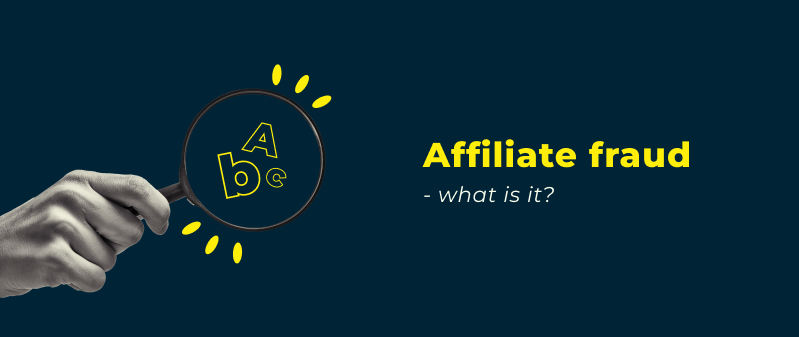DEFINITION
Affiliate fraud refers to the deceptive practices of unethical affiliates or affiliate partners aiming to manipulate the affiliate program system for undue financial gain.
Affiliate fraud refers to the deceptive practices of unethical affiliates or affiliate partners aiming to manipulate the affiliate program system for undue financial gain. This type of fraud employs a variety of techniques designed to unjustly amplify clicks, conversions, or profits in favor of the fraudster.
Table of contents
How do affiliate fraud work?
Affiliate fraud can manifest in several ways, including:
- Click fraud: Here, the fraudster repetitively clicks on their own affiliate links to boost traffic and consequently, earnings.
- False information: Some affiliates might disseminate misleading details about a product or service to entice customers into making a purchase.
- Cookie setting: Fraudsters might exploit browser or software vulnerabilities to set cookies that attribute conversions to them, even if users haven’t interacted with their affiliate links.
- Setting up accounts: If commissions are based on site registrations, a scammer might create multiple fake accounts to inflate their profits.
Why is affiliate marketing fraud a problem?
Affiliate marketing fraud poses a significant challenge for advertisers who end up compensating deceitful affiliates based on fabricated results. This dishonesty not only impacts the advertiser but also other genuine affiliates who might appear less effective in comparison. Such discrepancies can erode the motivation to participate and strain relationships within the affiliate network.
What effects does fraud have on affiliates and affiliate networks?
If an affiliate engages in fraud, they risk losing their compensation and might be ousted from the affiliate program. In certain circumstances, they could also face legal ramifications, especially if the partnership agreement stipulated punitive measures for fraud. An affiliate network tarnished by fraud risks financial setbacks and a damaged reputation, which might deter potential partners. Additionally, false product information disseminated as part of the scam can harm the advertiser’s brand reputation.
What tools and technologies help detect affiliate fraud?
Several mechanisms aid in identifying affiliate fraud:
- Anti-fraud technologies: These specialized software solutions can detect fraudulent accounts or click patterns.
- Data analysis: Tools designed for data scrutiny within the affiliate network offer insights into partners’ behaviors, potentially spotlighting anomalies.
- Reference tracking: These tools track the origin of traffic directed to the advertiser’s site.
- Remote monitoring: Solutions for remotely overseeing affiliate programs facilitate real-time monitoring of affiliate actions, making it easier to spot potential fraudulent activity.
What are the best practices for preventing affiliate fraud?
Although many facets of affiliate fraud might not be legally prosecutable, they can still breach the terms set out in the affiliate agreement. Hence, it’s paramount to draft clear cooperation guidelines from the onset and rigorously enforce any infringements. The contract should explicitly stipulate the advertiser’s right to take legal action against affiliates who engage in fraud or breach agreement terms.



